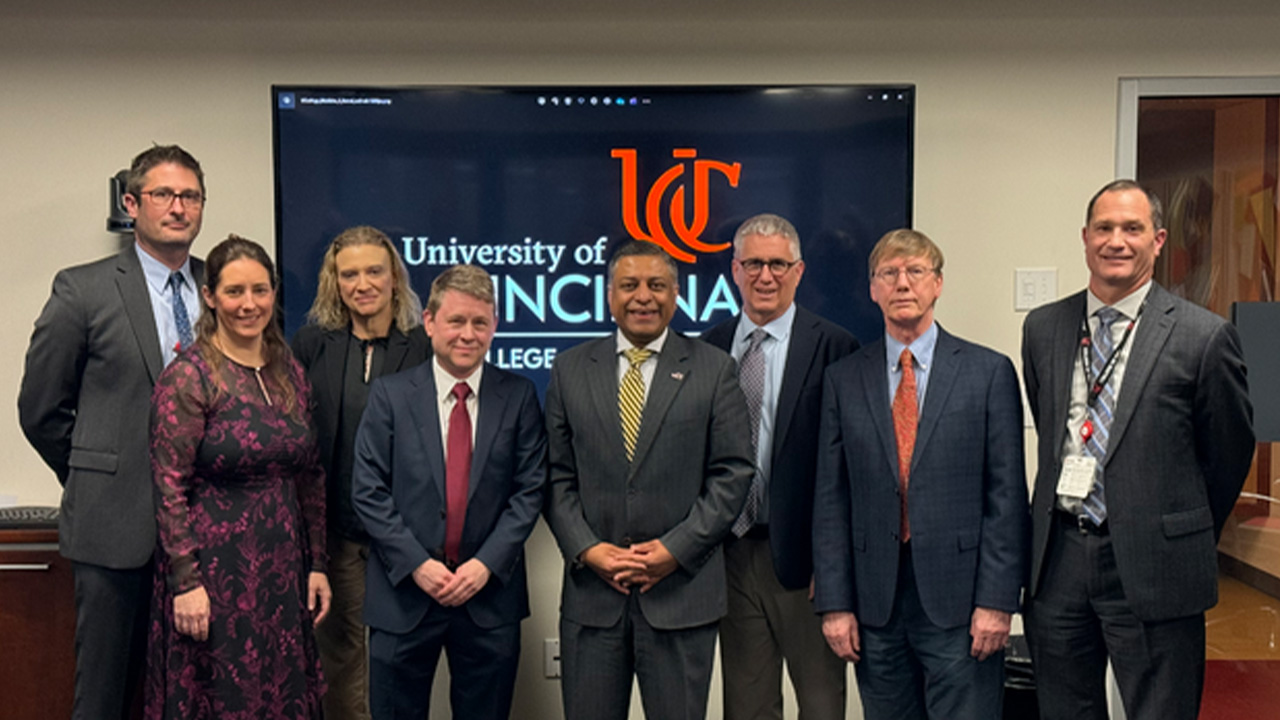As the opioid crisis continues through Ohio and the United States, the University of Cincinnati College of Medicine and UC Health hosted a team from the White House on Thursday to share how the college and health system have implemented evidence-based practices and community partnerships that have made a significant impact on reducing opioid deaths and overdoses in southwest Ohio.
The visit from Washington D.C. was part of a three-day trip to Columbus and Cincinnati by the White House’s Office of National Drug Control Policy (ONDCP). ONDCP Director Dr. Rahul Gupta and his team also met with Hamilton County leaders in medicine, law enforcement and government during their visit.
“I think the most important point is to be in the community to learn what's happening so that can make it to our policies and it will eventually impact people,” Gupta said.
Researchers and clinicians from the University of Cincinnati College of Medicine and UC Health sat with Gupta and his team for a roundtable discussion that illustrated how academic medical centers like ours are uniquely equipped to effect positive change in the community.
“Our goal overall right now is to make a way of tackling the opioid/drug overdose epidemic,” Gupta began as the cohort prepared to share examples and show updated data on how they seeing a real-time reduction in local overdoses, deaths and repeat patient care visits.
The conversation focused on the collaborative strategy of combining publicly-funded research, medical education, and evidence-based patient care to better serve patients with opioid use disorder in the hospital setting and beyond.



